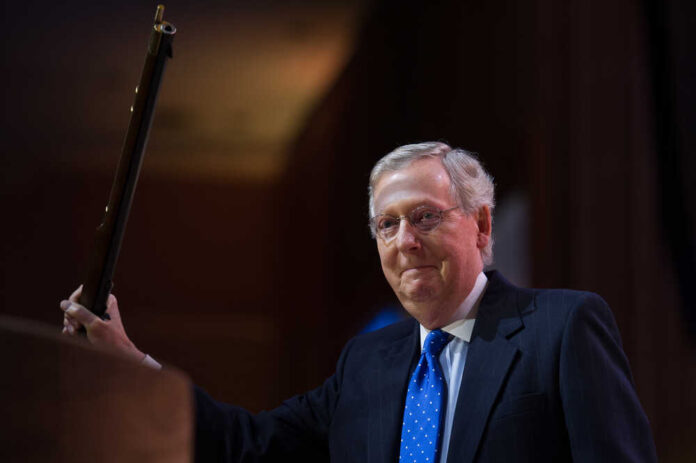
Sen. Kyrsten Sinema’s (I-AZ) decision to defect from the Democratic Party in December has raised questions about the Democrats’ ability to lead. She has been openly critical of her former colleagues, including Majority Leader Chuck Schumer (D-NY). The posturing comes as Sinema seeks reelection in 2024 while maintaining a delicate balance between both parties.
Sinema’s criticism of her former party has been public and private, with the senator calling the Democratic caucus’s weekly luncheons a “buffet of narcissism.” Her disdain for Schumer and other high-ranking Democrats, such as Joe Biden’s former White House Chief of Staff Ron Klain, has become more prevalent in her public comments and actions.
Report: Kyrsten Sinema Rips Democrats as Self-Lauding ‘Old Dudes Eating Jello’ https://t.co/UxLlFo6iJh
— judyann451 (@judyannaggie) March 24, 2023
While Sinema distances herself from the left, she appears to be cultivating a relationship with Senate Minority Leader Mitch McConnell (R-KY). This has led to speculation about a possible backdoor deal between the two in 2024 to prevent Democrats and populist Republicans from taking the Arizona Senate seat.
As the Republican Party in Arizona shifts towards populism, McConnell may struggle to find an establishment GOP candidate capable of surviving a primary against the likes of America First candidates such as Kari Lake or Blake Masters. In such a scenario, McConnell could strike a deal with Sinema in a three-way race with a Democratic candidate to keep another Trump ally out of the Senate.
Despite McConnell’s public reservations about trusting Sinema, Sen. Mitt Romney (R-UT) has expressed interest in seeing a deal cut between the two and has not ruled out endorsing Sinema in the future to undermine Trump-aligned voters and candidates. The Senate Leadership Fund (SLF), a McConnell-aligned Super PAC, has shown its willingness to avoid supporting populist candidates, as evidenced by its withdrawal of millions of dollars from Arizona and New Hampshire, even though it certainly helped Democrat incumbents retain their seats.
While Sinema’s move towards independence and potential alliance with the Republicans may concern Democrats, it reflects the changing political landscape and the increasing polarization between the two major parties. Sinema’s shift may also reflect a growing frustration with the Democrat’s ability to lead and create meaningful change.
The potential for a Sinema-McConnell alliance also raises questions about the future of bipartisanship and whether politicians will prioritize their self-interest over their party’s interests. It also highlights the increasing influence of money in politics and how fundraising is becoming an essential part of the political landscape.

















